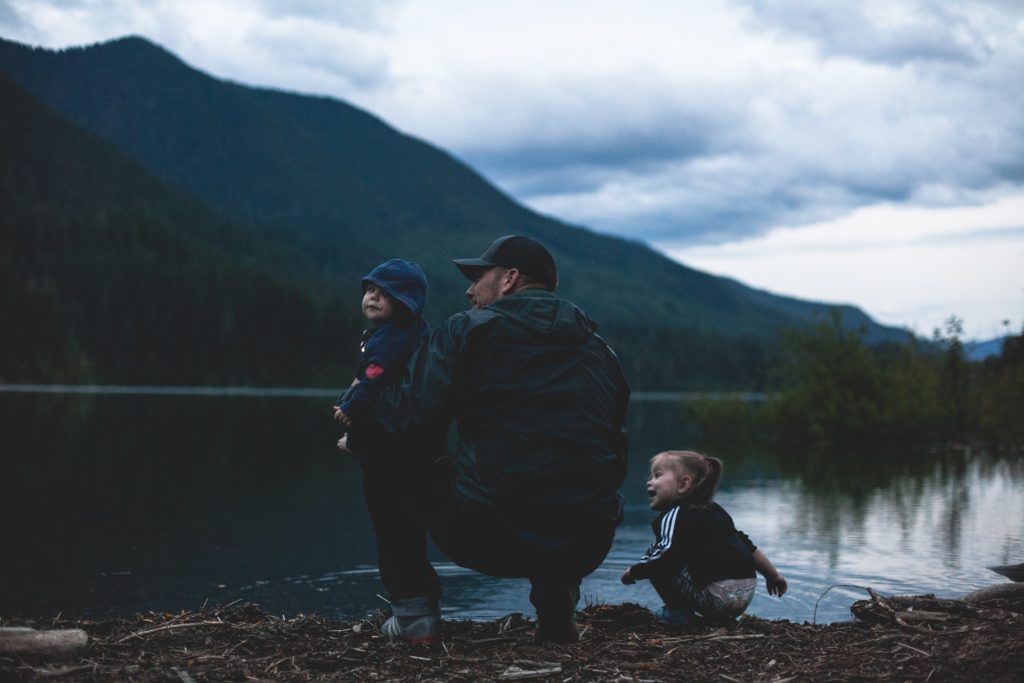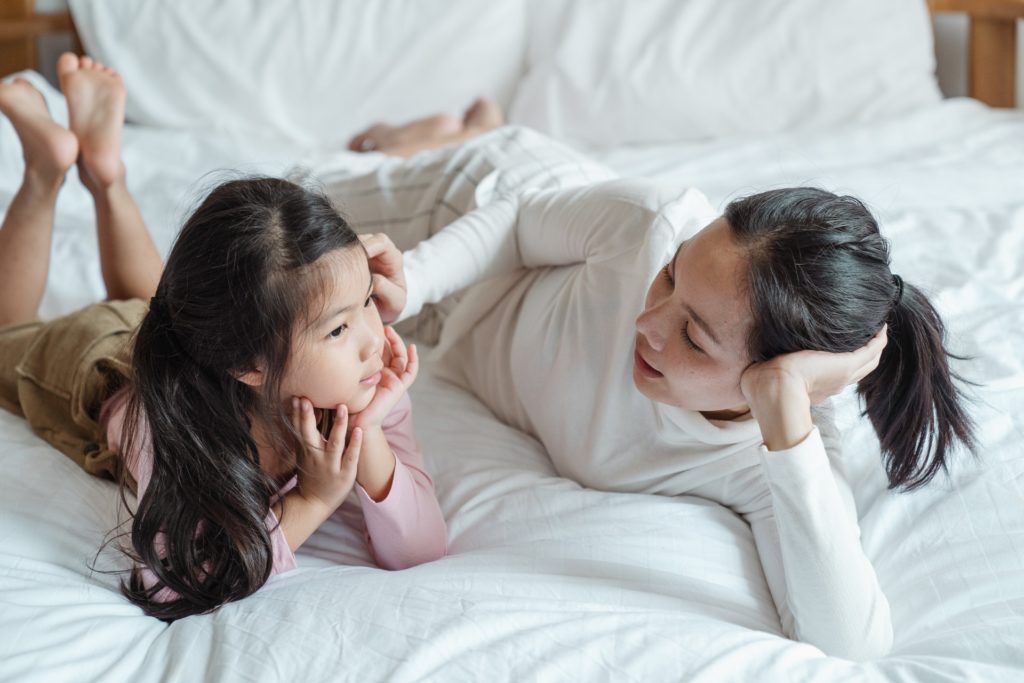(Cornellia Adams) Experiencing trauma in the form of natural and other disasters is something no child should go through without adult supervision. Even then, the long-term memories and effects this can manifest in your kids cannot be anticipated.
Related Kids In The Kitchen: 21 Age-Appropriate Chores
by Cornellia Adams, March 26th, 2022
According to Science Daily research, kids can recall memories tracking back to as early as two-and-a-half years of age, whether they’re positive or negative. This means that even when you help your kids cope with a disaster successfully, there may be lingering effects from the experience there to haunt them. Here is what you can do to make overcoming traumatic disasters easier for your kids so that they can fully recover from them as best as possible.
Types of Disasters to Prepare your Kids For
Despite what most people might lead you to believe, disasters are a real possibility and can disrupt your life on a fundamental level. According to Our World in Data, an average of 60,000 people lost their lives to natural disasters worldwide yearly. They affect low-income families and areas the most due to how unprepared infrastructure and logistics in most of those places are.
While you shouldn’t fearmonger and have your kids be afraid to walk to school or take a bike to their friend’s house, some preparation is still a good idea. Here are some of the disasters which can happen unexpectedly and affect your kids in long-term:
Depending on where you live from a geographic and topographic point of view, some disasters are more likely to happen than others. Helping your kids not only during but before any actual disaster happens can help them overcome the ordeal more successfully. Here’s how you can do it and have them be grateful for the effort you put into making them feel safer.
What Can you Do to Help Your Kids Cope with a Disaster?
Limit your Kids’ News Exposure
Once disaster hits, you’ll want to stay as informed as possible about the current situation, relief efforts, evacuation routes, etc. However, your child doesn’t need to hear any of that. News stations can often be alarmists and can blow things out of proportion for the sake of ratings.
Children are very susceptible to trusting the TV, especially without adult supervision. Instead of having your child listen to depressing news coverage of the disaster you’re facing, divert their eyes to more positive multimedia. Cartoons, movies, and any other form of media you may have on your smartphone or tablet device are a much better coping mechanism for kids. Filter the information you hear from news sources and only feed them the most important points based on your judgment.
Help your Kids Exercise Regularly

Many disasters will lead to you spending days or weeks in a shelter until help arrives or the situation deescalates. This can mean days and weeks of sitting in one place with cramped muscles and a general lack of physical activity. Don’t let your kids spend days slouched over a book or a tablet and help them exercise a bit each day.
Short exercises like doing squats, push-ups, and stretching each morning can work wonders for everyone’s mood. You can make it a family habit to exercise every day to keep everyone’s spirits up and so that everyone is as fit as they can be considered. This will help your kids’ psychological health as much as it will help them feel physically empowered.
Pack Your Kids’ Favorite Foods ahead of Time

Sometimes, all your kids will need to feel better is some comfort food. Snacks like cereal bars, chips, pretzels, or candy bars are easy to store and last a long time if you choose the right brands. Ask your kids about which snacks they love the most and store them away for a rainy day.
If a disaster hits, you’ll be able to give your kids something to snack on so that they feel at least a bit better. Some other snacks you can try getting a hold of include gummy bears, energy bars, dried fruits, nuts, etc. Make sure to pack them away properly so that they don’t go bad in a year or two at least. After all, you never know when exactly something might go wrong – all you can do is prepare on time.
Make Time to Play With your Kids
Whether your kids are toddlers, kindergarten age, or college students, it’s essential that they feel your presence during a disaster. There are many simple ways for you to play with your kids that don’t take up a lot of time or physical space.
You can pack away a deck of cards, a simple board game, or some dice away with your disaster supplies. Think of what your kids might be into and look for toys or games which don’t require electricity to play. These games can help you and your kids pass the time during a disaster and help everyone in the shelter feel better about your situation. Not only that, but your kids will come out of it far less scathed than they would if you focused solely on day-to-day disaster survival.
Keep Kids Occupied with Reading and Learning
Most of the time you won’t be able to tell when the disaster will end. This means you might spend prolonged periods in a shelter with your kids and they might get bored of it. You can circumvent this by packing a few picture books, coloring books, and books in general depending on your kids’ age.
If your kids are in college, tell them to pack some of their books along so they can keep themselves occupied. College students can get college paper for sale from a reliable writing platform and get their assignments done on time even without a computer. Reading, learning, writing, and other creative exercises are great coping mechanisms for kids during disasters.
Talk to your Kids Throughout the Disaster

As an adult, you’ll be overwhelmed with trying to make ends meet during a disaster. Keeping everyone safe, well-fed, healthy, and dry will be some of your most pressing worries. However, your kids’ mental wellbeing should be among those top-priority responsibilities. Your kids may feel isolated, scared, and helpless during disasters – you must talk to them.
Ask them about their feelings, about what they’ll do after the disaster, and what surprised them the most about the disaster. Ask them for their opinions on what to do next even though they may be too young to offer any objective help. Include them even in the most minuscule tasks and they’ll appreciate it, especially when it comes to them coping with the hardships of a disaster.
Help your Kids Maintain a Daily Schedule
If the disaster you’re experiencing lasts for longer than a week, start organizing a daily schedule for your kids. Kids are used to going to school, doing homework, and tending to chores around the house. They’re not used to sitting in a shelter and waiting for something to happen. Instead of being content with being safe, try to animate your kids somehow with daily tasks and schedules.
Brush teeth together, have lunch as a group, and clean up your space a bit every day. It’s also a good idea for your kids to know what day it is exactly and how long they’ve been in a disaster event to help them contextualize their experience. Daily schedules can help not only your kids but you as well, so try to organize your everyday lives as much as you can.
Consider Therapy for You and Your Kids
Once the disaster passes, it will be time for you and your kids to heal and get back to your feet. Relief efforts will help you recover from a logistical point of view but you still need to take your and your kids’ mental wellbeing into account. Therapy can be a great mechanism for kids to open up about their experiences during the disaster.
It can facilitate a safe discussion space for them where you, your kids, and a therapist can talk about everything. Getting some therapy for your kids after a disaster isn’t anything derogatory or taboo – it can genuinely help them recover. Don’t let negative emotions, fears, and doubts fester in your kids’ minds and assume the best – talk to them about group therapy and help them express their feelings.
Overcoming Disaster
According to ECLKC studies on childhood trauma, children who experience Adverse Childhood Experiences (ACEs) risk running into health, drug, and learning-related issues if they’re not helped on time. ACEs in the form of natural or other disasters can severely hinder your kids’ mental and physical wellbeing if left unchecked. While preparing supplies such as water, dry foods, and securing a safe shelter is pivotal, so is your kids’ feeling of safety. Make sure there are plenty of toys, multimedia materials, and colorful clothes, accessories, and books available in your shelter.
Depending on your kids’ age, they may even be able to help you prepare certain items and provisions, making them feel better about the prospects of overcoming these hardships. Do everything you can to alleviate your kids’ experience and help them cope. Young people are fighters and they’ll overcome any disaster given the support they need from you as their parents.
[the_ad_group id=”25840″]
Stillness in the Storm Editor: Why did we post this?
The news is important to all people because it is where we come to know new things about the world, which leads to the development of more life goals that lead to life wisdom. The news also serves as a social connection tool, as we tend to relate to those who know about and believe the things we do. With the power of an open truth-seeking mind in hand, the individual can grow wise and the collective can prosper.
– Justin
Not sure how to make sense of this? Want to learn how to discern like a pro? Read this essential guide to discernment, analysis of claims, and understanding the truth in a world of deception: 4 Key Steps of Discernment – Advanced Truth-Seeking Tools.
Stillness in the Storm Editor’s note: Did you find a spelling error or grammatical mistake? Send an email to [email protected], with the error and suggested correction, along with the headline and url. Do you think this article needs an update? Or do you just have some feedback? Send us an email at [email protected]. Thank you for reading.
Source:
https://theprepperjournal.com/2022/03/22/help-your-kids-cope/
[the_ad id=”121669″]

Leave a Reply